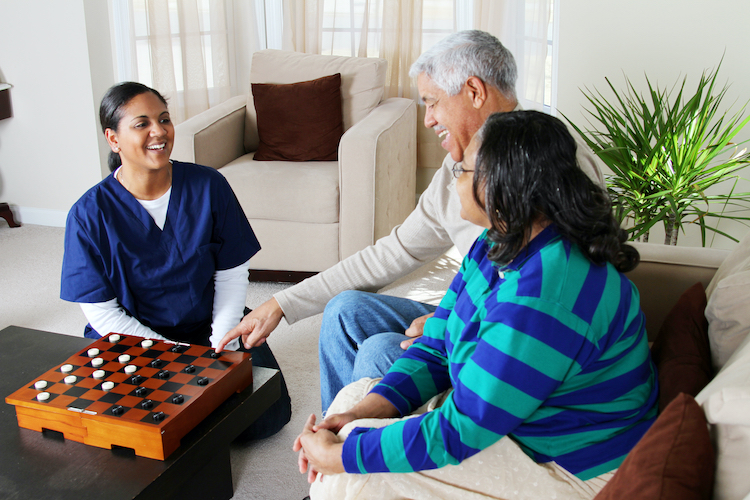July 26, 2022 - Senior Living
When At-Home Care Is and Isn’t a Good Choice for Seniors
It’s natural for most people to want to remain at home as they age, and sometimes it’s a good choice, at least for a period of time. But there are times when at-home care is not ideal in terms of safety, wellness, and comfort. Here are some factors to consider.
When At-Home Care Is a Good Choice
Not every older adult needs to leave home in order to receive the support they need. A person might just need assistance with a few tasks, such as meal preparation, paying bills, or getting to the doctor. It can be possible to employ a visiting nurse daily or weekly to check blood pressure and assist with medications. For simple or occasional needs, at-home care can be a sound option.
If the person is living with a family member, there are additional aspects of at-home care that can be of help. For example, adult day care is an option for those seniors who cannot remain at home alone. With adult day care, the family caregiver can go to work, take care of their children, and have the reassurance that their loved one is in a safe place while they get a break from caregiving. Adult day care is usually available on a daily or weekly basis, and includes activities, outings and lunch.
When At-Home Care Is Not a Good Choice
You may have tried to make at-home care work for a loved one, simply because they wanted to stay either in their familiar setting, or because they like the idea of being around you. Or, one of your parents might have tried hard to take care of the other, but it just became too taxing. Sometimes the safest and smartest solution is to realize that at-home care isn’t the best idea, and opt for a senior living community instead.
Here are some signs that at-home care isn’t the answer for a loved one:
• Not enough physical activity. Often when an older adult is receiving at-home care, they also might be having mobility issues and are no longer driving. Staying active physically can be difficult. Plus, it can be too tempting to spend the day on a couch or in a chair in front of a television, which is bad news for their health. A recent study found that increasing physical activity led to an 11 percent drop in heart disease risk among people aged 60 and older, while stopping physical activity increased heart disease by 27 percent. Even older people living with disabilities or chronic conditions like high blood pressure or diabetes benefited from exercise.
Bottom line: regular exercise such as the classes and instruction available in a senior living setting can help prevent or delay many of the health problems associated with aging.
• Not enough mental stimulation. It’s great to do a crossword puzzle or read the newspaper but living at home, or being alone most of the day in a family member’s house, limits the opportunities for learning or mental stimulation, which is another vital component of healthy aging. Older adults who engage in activities that stimulate the mind are less likely to experience age-related cognitive decline. That’s why being in a setting with ongoing options for lifelong learning is so beneficial as a person ages.
• Not enough social contact. Even if there is a home health aide or nurse visiting a senior every week, even every day, that’s much less social contact than they could have if they lived in a vibrant setting. While it’s not the amount of contact that matters so much as the type of contact—a good friend, trusted neighbor, for example—if a person perceives they are cut off or alone, damage to their health can occur.
Research has linked social isolation and loneliness to higher risks for a variety of physical and mental conditions: high blood pressure, heart disease, obesity, a weakened immune system, anxiety, depression, cognitive decline, Alzheimer’s disease, and even death. The facts say it all: the right kind of socializing is simply good medicine.
• Changes in health. Every person experiences physical changes as they age, but if a loved one shows signs of worsening health, it’s time to consider that at-home care may not be enough. Whether it’s a chronic condition that calls for constant monitoring, or a decline in cognitive health resulting in wandering or increased danger of falls or accidents, a supportive environment where your loved one can benefit from 24-hour attention might be the best choice.
Discover how our activities and programs will help you or your loved one age well. Contact us today to learn more. Please download the free guide, Just the Facts: A Guide to Assisted Living. We are here to help you!








